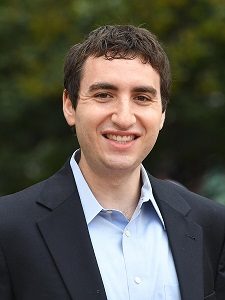
Hello! Despite the title of “PhD Candidate” displayed above, I completed my Ph.D. in Economics and graduated from Columbia University in 2021. I will be starting as an Economist at the Federal Housing Finance Agency in the summer of 2022. You can also find me on LinkedIn.
A vast literature documents the presence of unexploited potential gains from migration within a country, in both developing and developed economies. One possible explanation of what prevents people from migrating is that a lack of experience living outside one's hometown earlier in life could make it more difficult to migrate later on. In this paper, I use the natural experiment of military conscription in Argentina, which randomly assigned not only military service, but also the location of service, to study the effect of this temporary displacement on long-run migration rates. I then use a rich source of administrative earnings and employment data to investigate the labor-market implications of conscription and, in particular, displacement. I find that conscription on the whole caused a small increase in the likelihood of appearing in the formal labor force, and a small increase in earnings particularly for those who were assigned to serve in the Navy. Assignment to military service outside of one's province of origin increased the likelihood of living outside the province of origin by 2.5 percent, and while the net effects of this displacement on earnings and employment are imprecisely estimated, the evidence suggests that there are modest long-term benefits of conscription in Argentina that are not fully attributable to displacement.
Working Papers:
(When) Does Ramadan Affect Daily Caloric Intake? Evidence from Rural Malawi
Abstract: This paper investigates the effects of Ramadan on calorie consumption and labor supply among Muslim households in rural Malawi. Across four rounds of household survey data, I find no evidence of a decrease in calorie consumption during Ramadan on average. I do, however, find evidence that working-age people reduce their weekly work by about three hours, or nearly 20 percent, on average. This finding on calories shows substantial variation across the different rounds of data. The evidence presented calls into question the hypothesis that consumption during Ramadan should fall more dramatically when the holiday overlaps with the harvest (when baseline consumption levels are relatively high compared to the rest of the year), compared to when Ramadan falls near the annual hunger season (when baseline consumption levels tend to be much lower). I discuss potential implications of this variation for our understanding of seasonal consumption patterns.
Difficulties with DOTS: Can Direct Observation by Lay Providers Improve Tuberculosis Treatment Adherence? (with Kaivan Munshi and Nancy K. Luke; available upon request)
Abstract: Tuberculosis (TB), despite being a highly treatable disease, kills well over 1 million people every year, with 95 percent of cases and deaths appearing in developing countries. India bears the largest TB burden of any country, with more than 25 percent of the world’s total yearly cases. A key factor for successful management of TB is ensuring that patients complete the full six-month (or more) treatment regimen: missing even a few doses of the prescribed medications increases the likelihood of relapse and development of a drug-resistant strain of TB, which is much more difficult and costly to treat effectively. In this paper, we study the effectiveness of an intervention allowing patients to select a community member to serve as a Directly Observed Treatment (DOT) provider to help ensure compliance with the full treatment regimen. Although patients assigned a Community DOT provider report significantly more frequent visits and higher rates of satisfaction compared to our control group, we do not find any significant improvement in treatment outcomes among those assigned this intervention. We explore several potential explanations for this finding and suggest potential avenues for future research.
Teaching Assistantships: (evaluations available upon request)
Principles of Economics – Sunil Gulati – Fall 2014, Spring 2015, Spring 2019
Introduction to Econometrics (Undergraduate) – Gregory Cox – Fall 2017
Historical Foundations of Modern Economics (Undergraduate) – André Burgstaller – Spring 2016, Spring 2017
Economic Development (Undergraduate) – Anna Caterina Musatti – Fall 2016
Principles of Economics – Goran Lazarevski – Summer 2016
Intermediate Microeconomics – Susan Elmes – Fall 2015

